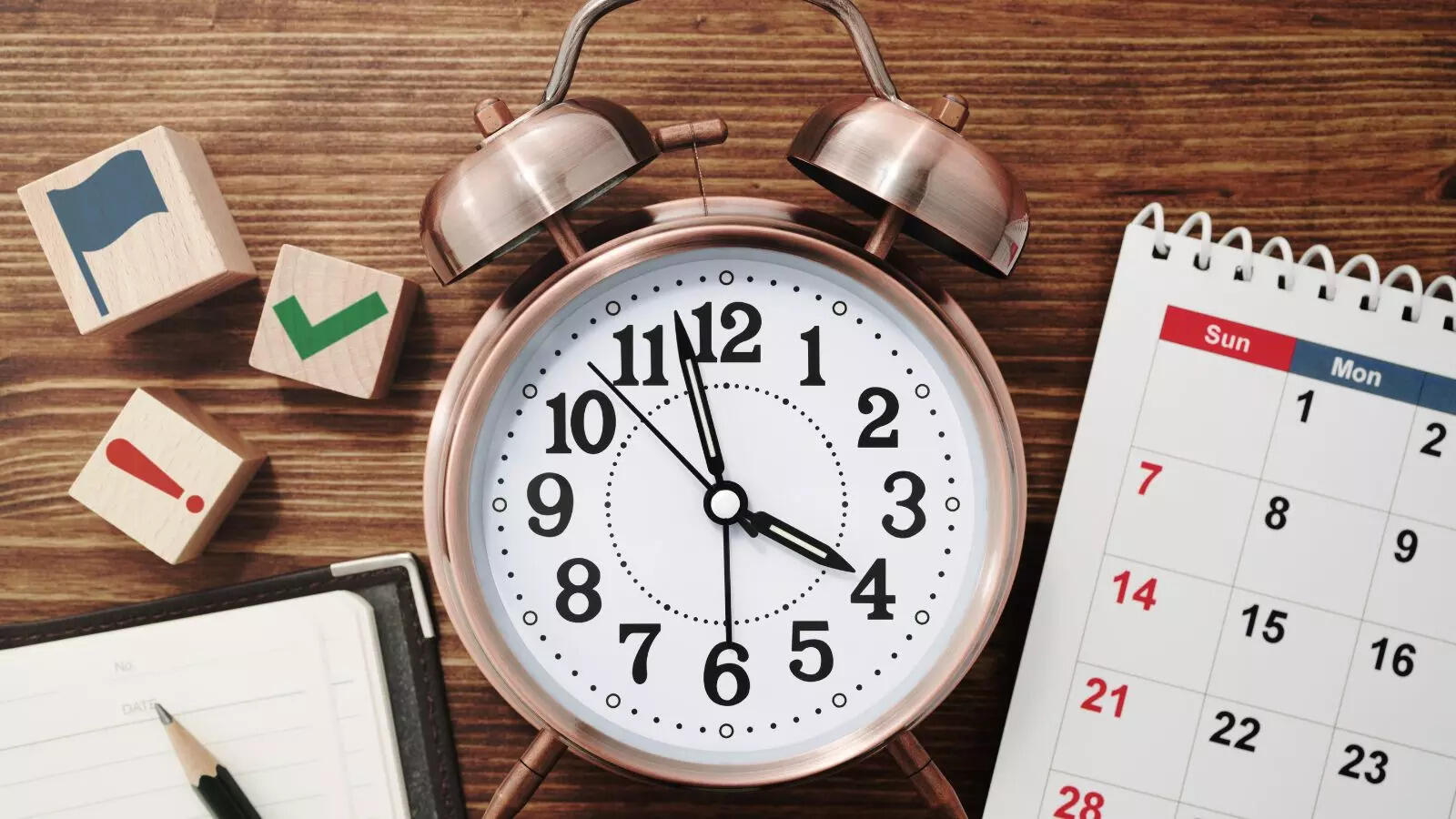Effective Time Management Tips for UPSC IAS Aspirants – Times of India
The Union Public Service Commission can be quite unpredictable in its examination pattern. Therefore, it is advisable to systematically prepare the entire syllabus, regardless of its extensive nature. Given the competitive nature of the UPSC IAS exam, effective time management is crucial for aspirants. Candidates always express their concerns about the vast syllabus, but with proper time management, you can successfully cover all the topics required for the UPSC Civil Services Examination.
Here are some of the time management tips that students can adopt to do well in the UPSC IAS Examination.
Realistic Study Plan
A proper study plan is the very step in your UPSC IAS preparation journey. This plan will help you stay organized and focused throughout your preparation. While formulating your study schedule, make sure to give yourself time for breaks, revision, and other activities. Stay realistic with your plan and the amount of study time that you can actually dedicate is equally essential.
Divide and Rule
The UPSC CSE syllabus is vast, so it is important to break it down into smaller, more manageable sections. This practice will make it easier for you to stay focused and motivated. You can divide the syllabus by subject, topic, and even individual chapters for better organisation and study planning.
Utilize Productive Hours
Identify your most productive hours during the day and allocate your most challenging tasks to those times. Focus on the most important topics first and leave the less important ones for later.
Break Down Study Sessions
Long study hours do not work for everyone. Divide your study sessions into smaller, focused segments with short breaks in between. Always try to understand what you are reading, even if it is for smaller durations.
Use Study Planner
Once you have created your study plan, it is important to manage your time effectively. Try to keep track of your progress and schedule through an online calendar or planner. This will help you stay organized and on track. If you find yourself falling behind, don’t be afraid to adjust your plan accordingly.
- How many hours should I study each day for UPSC IAS?
Always remember that quality matters more than quantity. Aim for at least 6-8 hours of focused study without losing your focus. Make sure to take regular breaks to avoid overexertion. - Should I study in the morning or at night?
It entirely depends on your personal preference. Choose the time when you are most alert and focused. Many candidates find early morning hours conducive. - How can I manage time for current affairs and newspapers?
Dedicate a specific time slot each day for reading newspapers and current affairs. You can also use digital resources and apps for quicker access to news updates. - How can I maintain a work-life balance during UPSC IAS preparations?
It is always a challenge to maintain a work-life balance with UPSC preparation. However, set aside time for relaxation, hobbies, and spending time with loved ones.
function loadGtagEvents(isGoogleCampaignActive) { if (!isGoogleCampaignActive) { return; } var id = document.getElementById('toi-plus-google-campaign'); if (id) { return; } (function(f, b, e, v, n, t, s) { t = b.createElement(e); t.async = !0; t.defer = !0; t.src = v; t.id = 'toi-plus-google-campaign'; s = b.getElementsByTagName(e)[0]; s.parentNode.insertBefore(t, s); })(f, b, e, 'https://www.googletagmanager.com/gtag/js?id=AW-877820074', n, t, s); };
window.TimesApps = window.TimesApps || {}; var TimesApps = window.TimesApps; TimesApps.toiPlusEvents = function(config) { var isConfigAvailable = "toiplus_site_settings" in f && "isFBCampaignActive" in f.toiplus_site_settings && "isGoogleCampaignActive" in f.toiplus_site_settings; var isPrimeUser = window.isPrime; if (isConfigAvailable && !isPrimeUser) { loadGtagEvents(f.toiplus_site_settings.isGoogleCampaignActive); loadFBEvents(f.toiplus_site_settings.isFBCampaignActive); } else { var JarvisUrl="https://jarvis.indiatimes.com/v1/feeds/toi_plus/site_settings/643526e21443833f0c454615?db_env=published"; window.getFromClient(JarvisUrl, function(config){ if (config) { loadGtagEvents(config?.isGoogleCampaignActive); loadFBEvents(config?.isFBCampaignActive); } }) } }; })( window, document, 'script', );
For all the latest Education News Click Here
For the latest news and updates, follow us on Google News.


